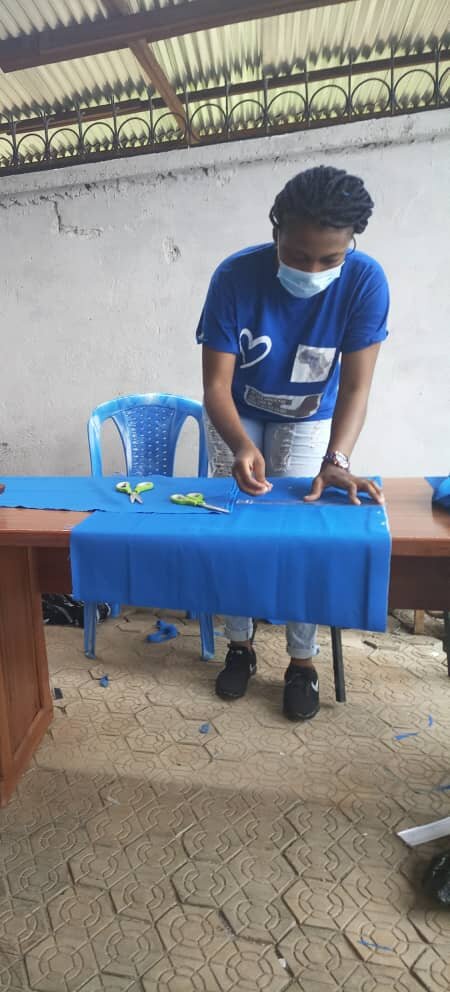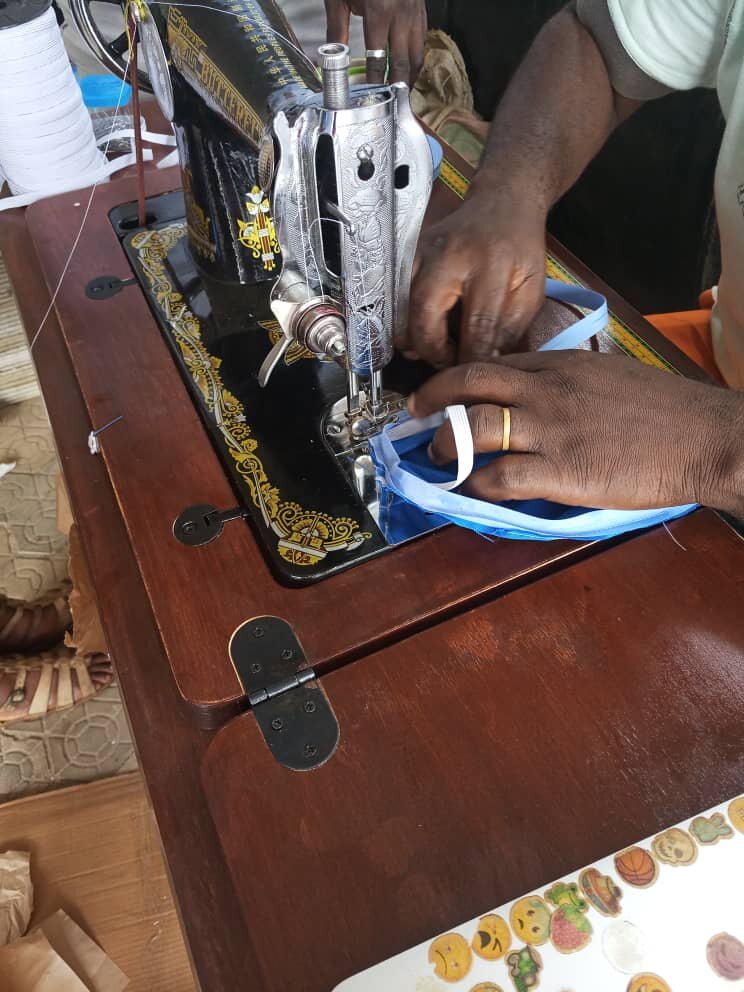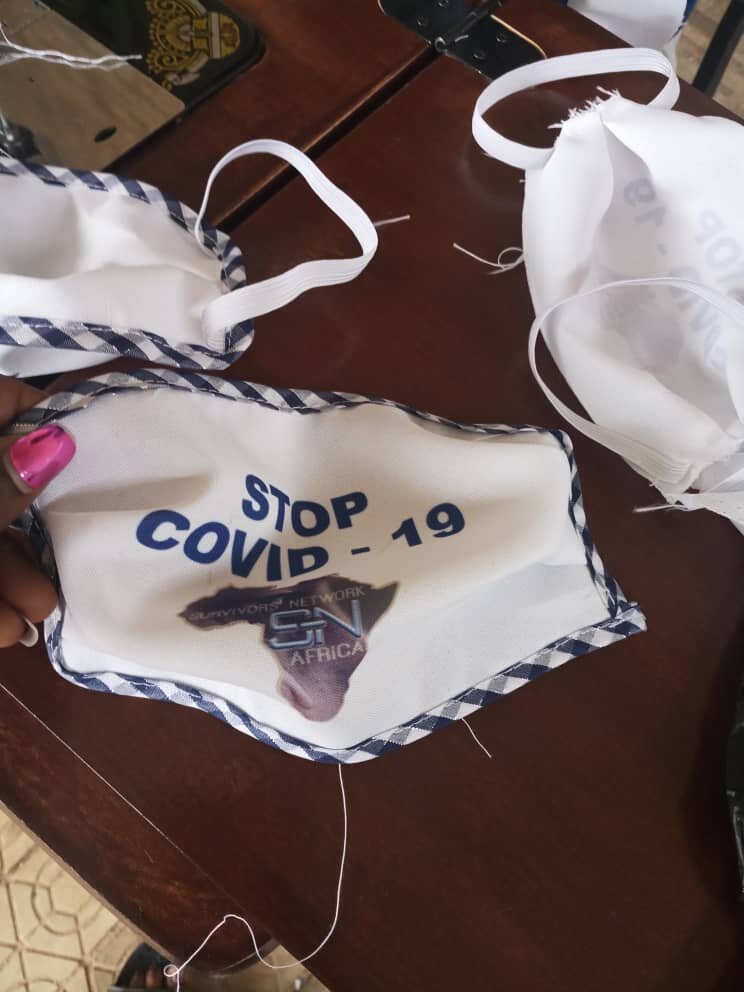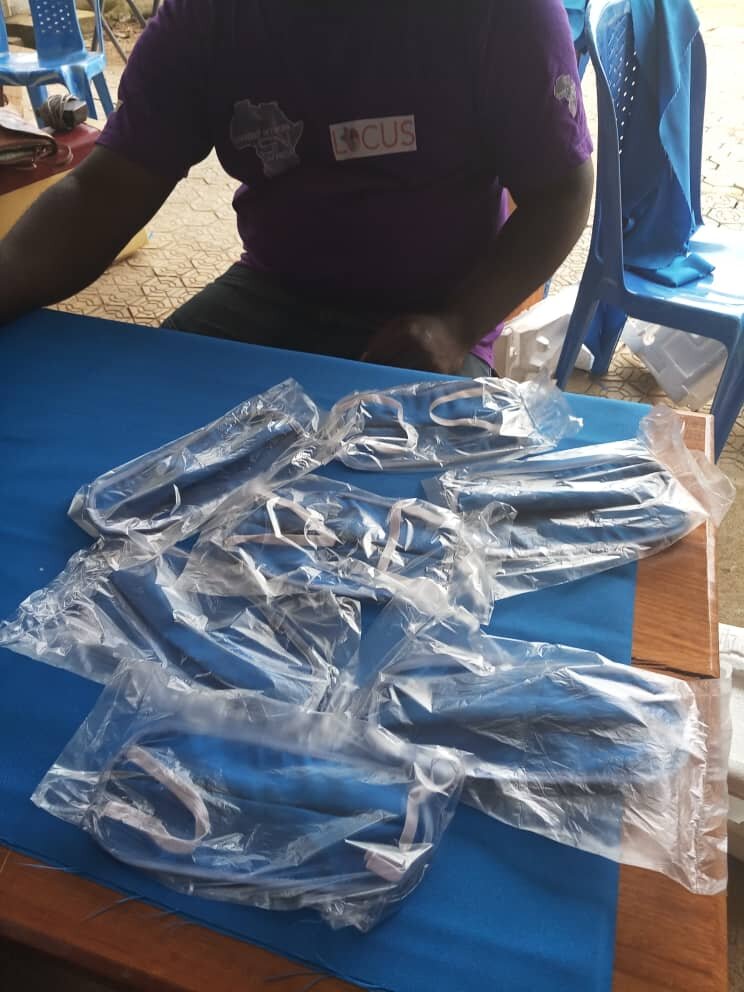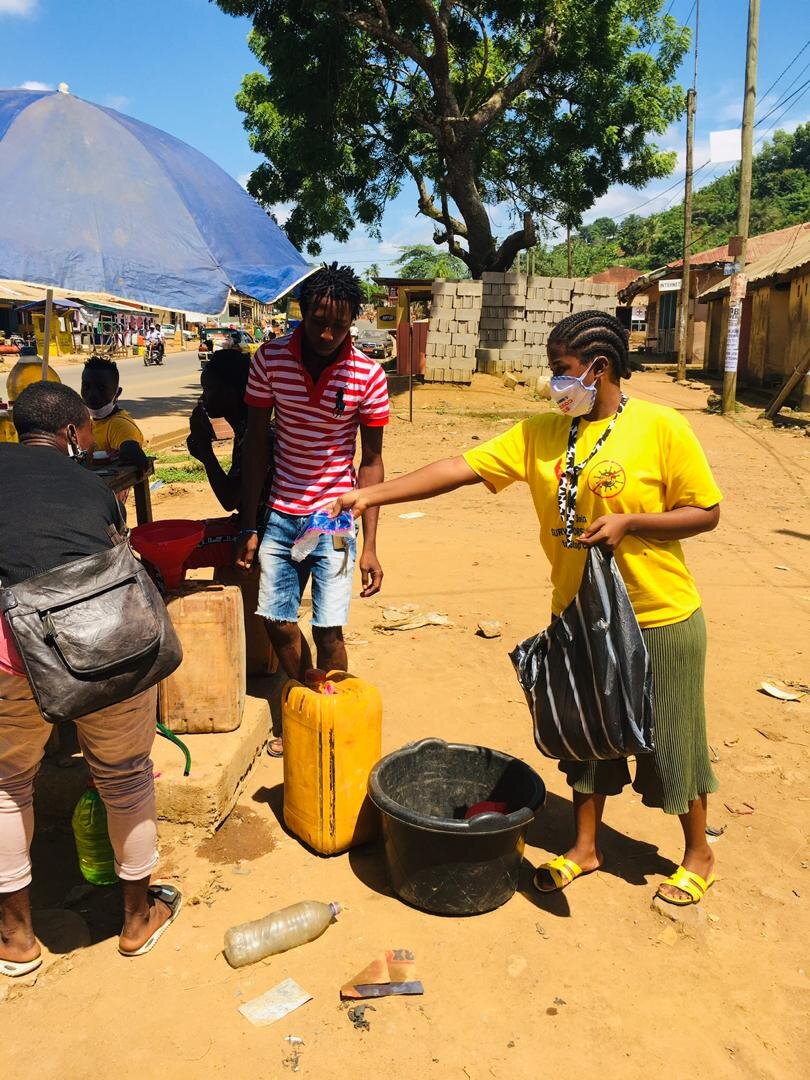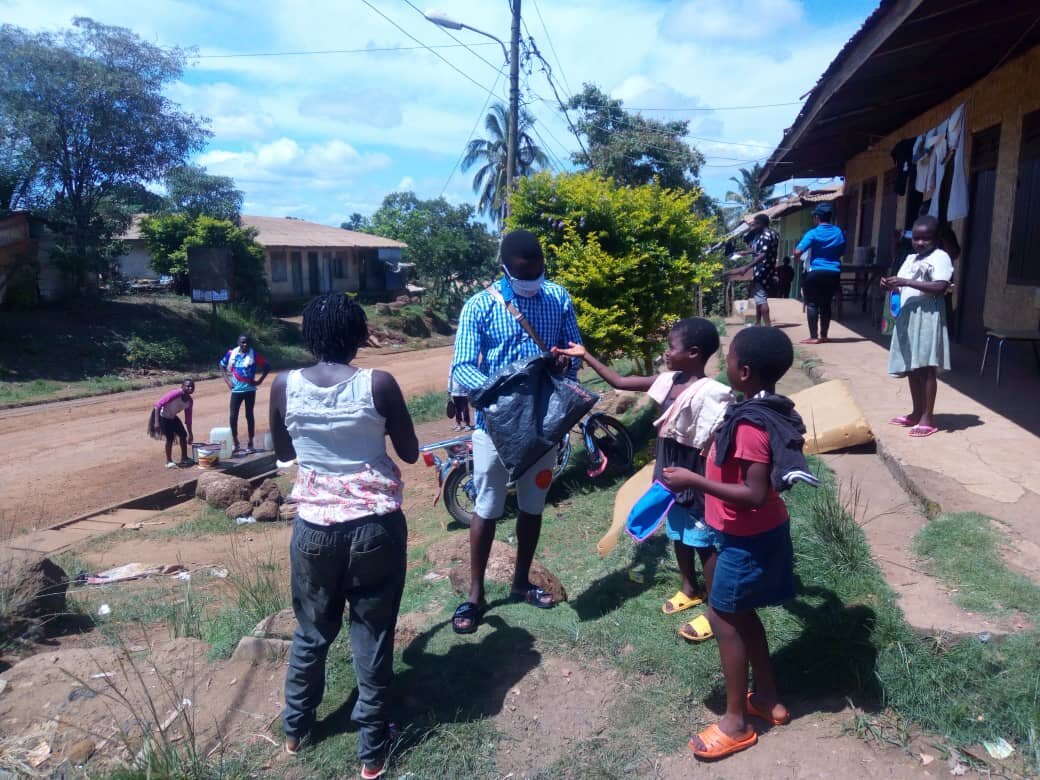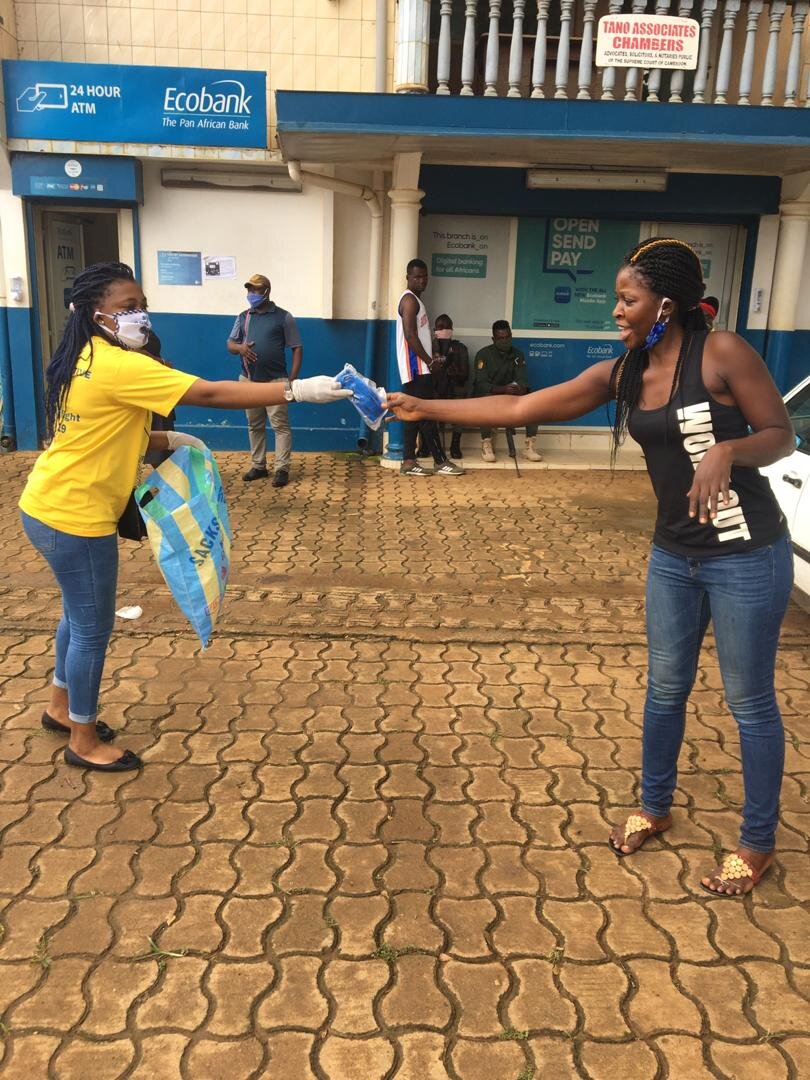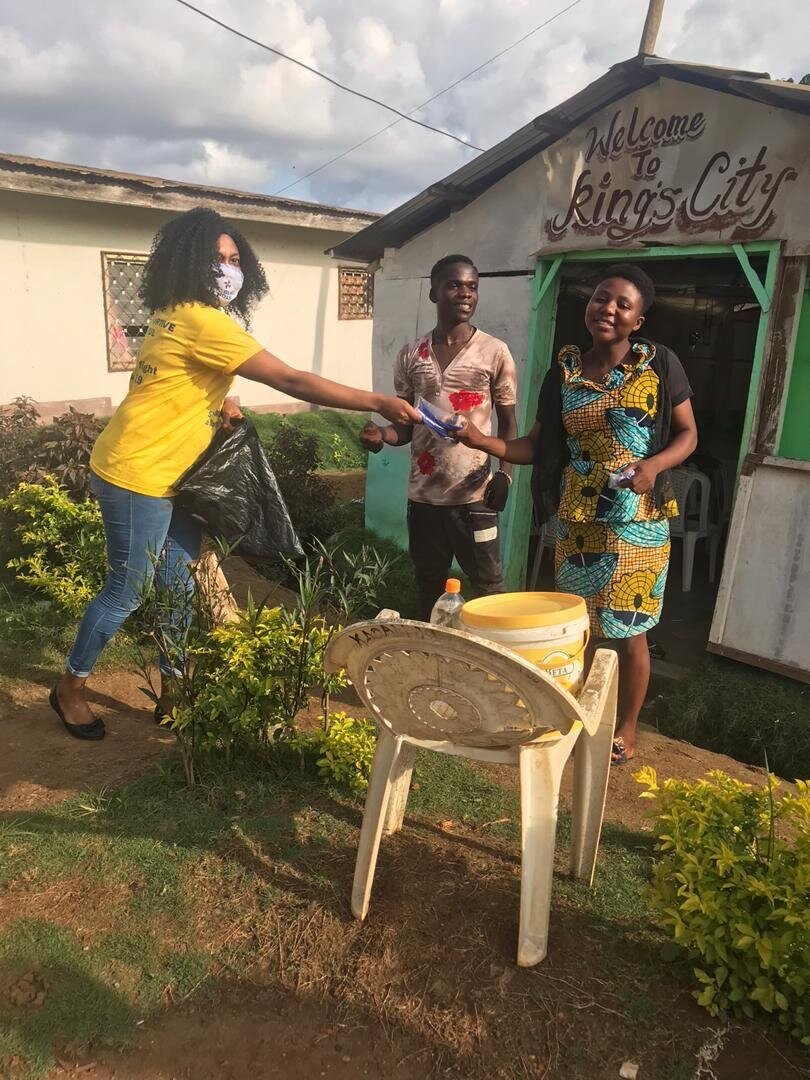10,000 masks and accurate facts: Freedom For All’s partner Survivors’ Network brings safety to communities in Cameroon
As COVID-19 turned into a global pandemic, we at Freedom For All have focused our efforts on helping our partners adapt their missions. Three of our partners, Jeevika Free in India, Survivors’ Network in Cameroon, and Mentari in NYC, have had to reinvent the way they operate to help some of the most vulnerable people.
In a three-part blog series, we are exploring how these partners are responding to the pandemic, and why we believe that their new roles are essential in the fight against human trafficking and exploitation in times of crisis. In this second installment, we’re off to Kumba, Cameroon, where Survivors’ Network is helping vulnerable communities protect themselves from the virus.
***
“Many people are still in need. Our target is 10,000 face masks. We’re getting to it.”
Francisca Mbuli is determined. With her team at Survivors’ Network, she has spent the past few weeks helping the most vulnerable fringes of the population fight the spread of the coronavirus, and she won’t stop before those 10,000 masks are sewn and distributed.
“It’s not easy. Me and my team are facing a lot of challenges. We are risking our own lives to go out and distribute masks to the community. We lack resources to run our daily activities, because items are more expensive than usual.”
For the past five years, Francisca and her team have set up dozens of empowerment workshops with vocational and financial literacy training for survivors of human trafficking in and around Kumba, in the southwest region of Cameroon. Through these, women gain the skills and confidence to start a business or find employment. In an area where ongoing conflict between the government and separatists has reshaped every aspect of regular life since 2017, the pandemic has hit these women particularly badly. Women who attended Survivors’ Network empowerment programs in the past, or whose businesses were launched with a grant from the organization are struggling to stay afloat.
“Most of the women we are working with have lost their sources of livelihood,” says Francisca. “Many were laid off. And for those who are still working, business isn’t going well. One of the survivors we work with who makes and sells snacks told me that business was very slow. People are staying home.”
On top of that, Francisca says that there is a real spike in the prices of most basic goods. “Women we work with are struggling to buy food and drinking water. It’s not easy to see how they’re suffering.”
Francisca and her team at Survivors’ Network made it their mission to provide protection, as well as information, to people stranded at home.
“There is panic. People are scared because no one knows what the real number of cases is in Kumba. Not a lot was done to stop the spread of the virus, so we decided to make and distribute reusable face masks and hand sanitizer to people in Kumba”, says Francisca. “We donated buckets full of masks to many churches. Members of Survivors’ Network have sensitized people at bus stations and at various markets on preventive measures to adopt.”
While they are unable to organize workshops or trainings for survivors of human trafficking and vulnerable women due to COVID-19 social distancing and gathering precautions, Survivors’ Network is making sure that these women have what they need to go through this crisis.
“Some of our main activities to combat human trafficking have been halted and our focus is now on stopping the spread of the virus. Distributing masks, and food to survivors means that they won’t go out to buy food, and for some of them it also means that they won’t engage in desperate activities like prostitution in order to feed their families.”
Handing out masks and food supplies around town also means that Survivors’ Network is meeting with people they hadn’t previously been able to reach.
“The distributions have allowed us to reach out to the most vulnerable, especially people who are internally displaced because of the armed conflict in the region, as well as survivors of human trafficking,” says Tatiana Netongo, one of Survivors’ Network’s workers.
Last week, during one of their distributions, they met with a young internally displaced mother. “She is 19, with a two-week-old baby and two young children,” says Francisca. “It’s heartbreaking.”
Survivors’ Network staff visiting an internally displaced young mother and assessing her needs.
While Francisca is glad that Survivors’ Network is able to reach out to so many people in need, she is also worried about how the situation will evolve.
“If there isn’t an end to the virus anytime soon, many families who are already vulnerable will suffer,” she says. “If they don’t have a way to make money, how can they pay their bills, their rent, how can they buy food and take care of their health? I think the pandemic will have long lasting negative consequences on vulnerable populations, especially the ones who were already at risk prior to the crisis. These will include malnutrition, in particular for children, a rise in gender-based violence, and economic stress. Economic stress is particularly worrisome to us, because the need to make a living no matter what exposes people to exploitation, abuse, and labor rights violations.”
As of this writing, the 6pm curfew was just lifted in Kumba. Most businesses are starting to reopen. Similarly, schools and universities have started again across the country, although the number of COVID-19 infections continues to rise. So far, Cameroon has 6,380 confirmed cases of the virus, with 273 deaths. By defusing a growing sense of panic and providing residents with protection and accurate information, Survivors’ Network is helping thousands in Kumba gain a better understanding of the crisis and take care of their communities.
Text by Chloé Perceval. Pictures courtesy of Survivors’ Network.

